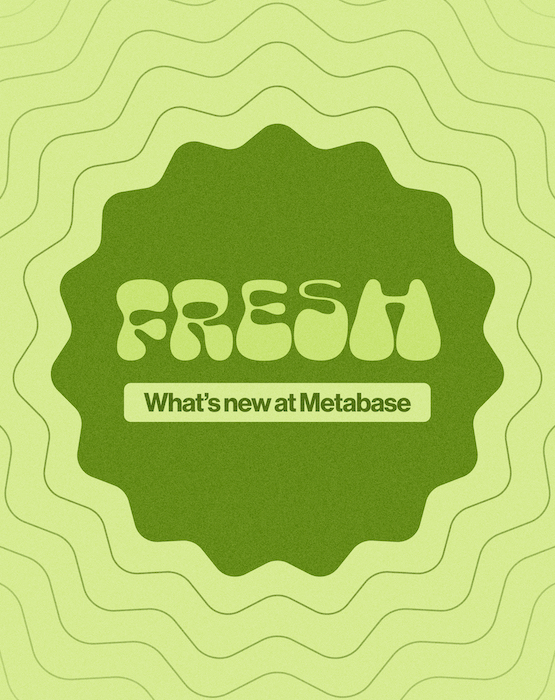About this event
On April 20, 2023, we got together to talk about Actions—our newest way to work with data in Metabase 46.
Guests

Maz Ameli
Head of Design, Metabase

Ryan Laurie
Frontend Engineer, Metabase

Bruno Bergher
VP of Product & Growth, Metabase
Summary
This event dives into the logic and mechanics of Metabase Actions, how to create basic or custom actions and how to use them in a dashboard, as well as a few practical and very fun examples of how you can use Metabase actions.
See the full video to see how Ryan Laurie, Frontend Software Engineer at Metabase, uses Metabase Actions to build a Pokemon Stadium dashboard, and a demo of CRUD operations, and public actions from Maz Ameli, Head of Product Design at Metabase.
This event starts with a demo of Ryan’s in-house Pokemon Stadium dashboard created with Actions. This dashboard allows you to compare a Pokemon's performance and simulate battles. With the addition of action buttons, it records battle results and explores different Pokemon matchups.
To explain the mechanics of Actions in relation to the demo, Maz walks through the process of setting up actions in Metabase. He explains how actions are associated with models in Metabase, and can be parameterized SQL queries. Maz demonstrates how to create a customer model, which serves as the basis for the operational database.
Maz shows how to enable and customize both basic actions (CRUD operations) and custom actions (flexible SQL queries with parameterization) in Metabase, and how to integrate them into a dashboard. Maz also highlights the dynamic capabilities of actions, such as pre-populating parameters and connecting the ID column to the widget for automatic filtering.
There is also an overview of link cards, how they can direct users to URLs outside of Metabase, or specific objects within Metabase, and the concept of public actions, which generate publicly accessible URLs for users to respond to surveys or submit access request forms.
With this knowledge, Ryan explains the battle logic behind the Pokemon Stadium dashboard and how actions can incorporate data-driven code-like behavior within Metabase. Leveraging parameterized SQL queries, Ryan’s type modifiers model is used to calculate the effectiveness of attacks based on Pokemon types. The results are stored in a separate table called Pokemon battles.










